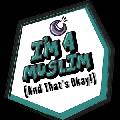But the feelings grew. They became more and in my mind, irrationally so to the point where I was maybe a four out of five, which just seems crazy to me. And so initially, all of my responses to her work 100% genuine. No, don't worry about it, I'm fine. Please take care of yourself

J Twisted
@TwistedChick · 4:52
But then your immediate reaction to caretake and make her feel that it was okay was also people pleasing, trying to nurture instead of, like, having a natural well, I don't know what your natural response would have been. I can't speak for you, but I know for me, my immediate response usually is to nurture and caretake and make the other person make sure they don't feel bad, right? But then my disappointment sets in later

Shehla Faizi
@iamatopodcast · 4:34
And yes, you had stated it correctly, that you consciously need to be aware of this fact that, no, the other person had valid reasons, and there's no need for me to be disappointed above a certain level, and it's hard. It is very hard. When we have been going through this collectively as women for literally centuries, it's very hard to really remove that from you unless you're conscious of the fact that you don't have to apologize for something so basic
And it's just like the constant growth process of recognizing when I'm apologizing and I shouldn't. When I'm people pleasing and I shouldn't. And then I don't even like using the word should or shouldn't. But also the undermining language. I did a lot of that myself. And that's something else I'm working on. I don't always catch that, though, because part of me I spend a lot of time in male dominated spaces and conversations on another platform
I'm not speaking about clinical narcissism, but I think there's almost some narcissistic traits perhaps that are woven into the conditioning of men. And I'm speaking very generally and not all men, but when there is this idea of entitlement or this idea of being owed respect or owed fill in the blank, right? All of these sorts of ideas, then it feeds the ideas of hierarchies. Men are up here. Like, you can see what I'm doing and women are below

Shehla Faizi
@iamatopodcast · 2:33
So if you put it on the flip side, for literally centuries, men have had this I would say, I guess, status in society, which came with a lot of entitlement. And because of that, they have this tendency to genetically feel that they're entitled to everything. I sincerely believe that I can't bring up any science over this, but I do sincerely feel that. And here's the thing

Georgie Dee
@GeorgieDee · 4:48
I don't say sorry too much and I'm going to continue to mentor and support other women to let go of that behavior. Because language which creates reality

Georgie Dee
@GeorgieDee · 3:30
You walk into a situation where you imagine that the teacher has all the knowledge and they're going to do a knowledge dump into your brain and you have no knowledge. It's a false paradigm because it's not true. But because of the history of education, because of our learned experiences, we all feel vulnerable in a learning situation. And so there's that natural desire to apologize because we feel like we're coming from a place of deficit and error. Of course we don't know

Georgie Dee
@GeorgieDee · 1:53
People have talked here about Narcissism and how people raised underneath Narcissistic rule, and you got scapegoats who are people pleasing? I know about that stuff, but I have Narcissistic mother and father. Mother is covert. Father is overt. And I grew up with that. And what I've noticed beyond that is era. So in, the parents never apologized to children. They were always right. Their rule was absolute. Their power was absolute. They were never wrong

J.L. Beasley
@Her_Sisu · 4:18
It has an anti space, how those back in the day bathrooms have the like, little power room before you actually enter the actual space with the toilet in the stalls and stuff like that. Well, it has a little anti room with a mirror, maybe about a five foot step space. And then there's a second door. You actually enter into the bathroom and frequently people will open the first door that goes into the antispace
And also perhaps if we can pass down generationally trauma in our genetics and so on, then maybe there's also other aspects that we can pass on. And I don't know if entitlement is some of that, but definitely if some generations believe it and they teach it to their children, then it's going to be perpetuated to some extent as well. Even if it's not in the genetic makeup, there's still a passing on, a perpetuation of I also think you're right
Okay, full transparency. I haven't listened to the third message yet because I had too many thoughts and I didn't want to forget that. Apparently he had some thoughts too. This is also fascinating because I think in some ways it highlights ideas around hierarchies or power dynamics, right? When it's just gender and then there's the power position and the almost groveling position or the expectation of but when it's in the teaching environment
I don't know. I'm arguing with myself now. But if hierarchies are a part of someone's regular perception of the world, I think it's easier then to feel a need, maybe in some cases to grovel more or to apologize more. Because it's an attempt to show the other person that I recognize where I'm supposed to be, quote unquote. Right?

Georgie Dee
@GeorgieDee · 2:09
Of course I'm leading. But I'm not perfect, and I don't have absolute power. And when you redress this with a group of students, they learn better. There's a more positive culture in the classroom. If a teacher can apologize, then they realize that they're not always going to be in deficit because no one's perfect. I think I've just said that. Anyway, here's an example
Oh, yeah, I was thinking the same thing. I can't necessarily quote, unquote call it out or even highlighted for so many reasons because, like, if someone did it to me and I wasn't ready to start addressing this or looking at this or asking why am I doing this, well, then it puts me in a position of being defensive and I'm not going to respond well to that, right?
Have different skill sets and you can also make observations that can be missed by the teacher and so on. It creates a different sort of relatedness. Which is exactly what's needed when it comes to teaching and learning. Because I don't know, I would be far more receptive in a teaching environment like that than if I'm going to have somebody upfront with it. Sorry

Georgie Dee
@GeorgieDee · 2:52
Christina that is historically where punishment is meted out. If someone's called up to the front, they're being told off or corrected, they're in trouble. So the only time I get students to come and sit next to me at my front teacher table and I'm not standing, we're both sitting is to show them their progress. It's a constant, active process of trying to turn this culture around, of students having to apologize for their very existence. Got to be changed
And also, I think each time that you recognize a mistake and show it, you're embodying and showing living your example of learning. We can't learn unless we make mistakes. And if we don't allow ourselves to make mistakes because we're too worried about power dynamics or hierarchies or losing a sense of self by making a mistake, we're apologizing. We are completely missing out

Eluchianna Olive
@Luchianna · 4:30
But people are just going to be people. And there's nothing wrong with being weak some days and being strong the next is the evolution of life. We are not just one way. We're both happy, sad, sorry, not sorry, unapologetic, apologetic. But as long as you are aware and understand what exactly your intent is or their intentions. I think it leaves room for again opportunity for growth or learning training opportunity for others
You know, the cultural perspective or framing of apologies and weakness is fascinating to me on the one hand because it's almost like if someone takes this action instead of seeing it as an action or a particular instance or of whatever's happening here, it's suddenly a way of evaluating the entirety of a person. It's like demoting them in some way. And then we can talk about olive, all of the different aspects of whether this is honest or not honest and so on, right?

